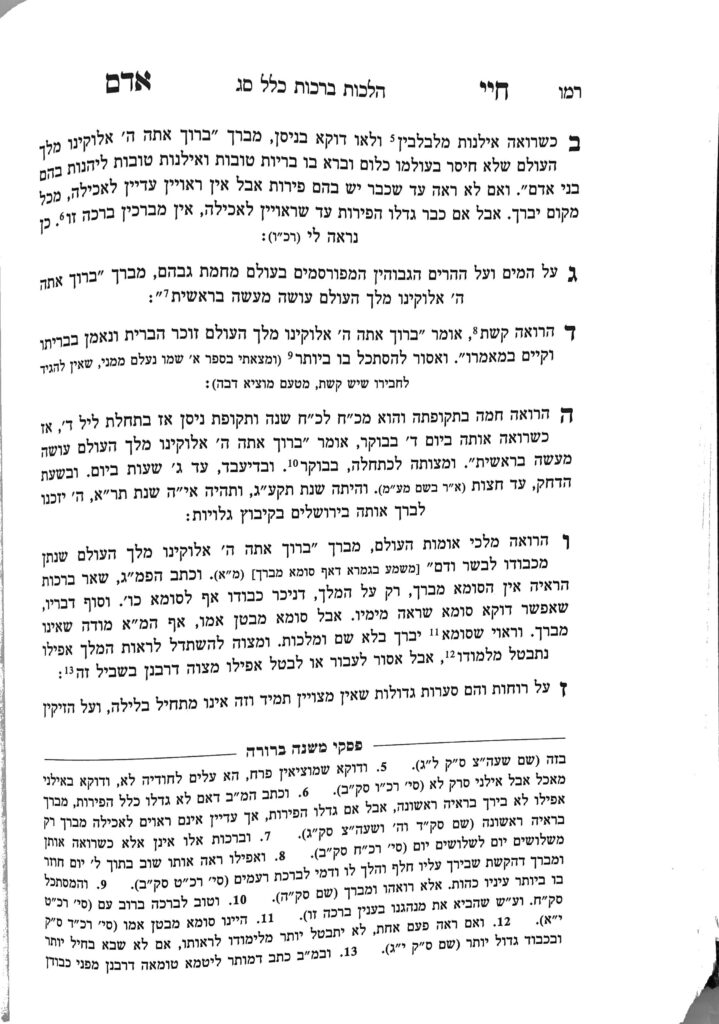We are beginning siman 6. If one sees a non-Jewish king, they recite the bracha of she’cholak chochmaso le’basar vadam.
There is a separate bracha for a Jewish king (she’cholak chochmaso lireiav), and for melech hamoshiach.
The bracha is only made on an absolute monarch, who has the power of life and death.
The Chayei Adam now discusses a blind person. In general, a blind person cannot make a bracha on items dependent on sight, such as a rainbow. Regarding a king, the primary catalyst for making the bracha is the feeling of awe and reverence generated by a monarch, so a blind person may make the bracha because they can feel those things as well. However, a person born blind should make the bracha without Hashem’s name.
The Chayei Adam writes that it is a mitzvah to see a king, even if it means taking off from learning to do so. He explains that the awe and inspiration a person receives from witnessing kavod hamalchus gives a person a greater contrast to the kavod and awe of a true Jewish king, like melech hamoshiach, and is a contrast that one should have in their life.
This mitzvah applies only once, unless the king is coming a subsequent time with even greater kavod. Although it is muttar to interrupt learning, it is assur to transgress even one issur derabanan in order to see a king. The Mishnah Berurah seems to indicate that one could transgress an issur tumah derabanan to see a king.
Nowadays, most kings do not have the power of life and death, so there is no bracha on them. By extension, no elected officials receive the bracha.
The argument is made that one can make the bracha on the president of the United States due to his ability to pardon. However, presidential pardon only gives life, not death, so no bracha is made
The bracha is not made on Amalek kings. The story is told that Rav Yosef Chaim Sonnenfeld ztl refused to meet Kaiser Wilhelm, because, although he had the power of life and death, Rav Yosef Chaim felt he had exibited signs of descending from Amalek.
When the current queen of England was crowned, Rav Eli Meir Bloch ztl went to a televised showing of the event in order to gain the contrast mentioned above between the kings of the world and melech hamoshiach. Even though he could not make a bracha, he still felt it was worthwhile to experience.
Summary
- The bracha made on a non-Jewish king is she’cholak chochmaso le’basar vadam.
- The bracha is only made on an absolute monarch, who has the power of life and death.
- A blind person may recite this bracha. If they were blind from birth, they recite the bracha without Hashem’s name.
- It is a mitzvah to witness the kavod hamalchus, in order to have a contrast between them and melech hamoshiach. One should even take off from learning for such an opportunity.
- However, once a person has had the experience once, the mitzvah no longer applies, unless a subsequent sighting will be with a greater display of kavod.
- The bracha is not made on Amalek kings.



